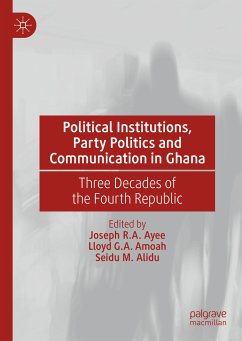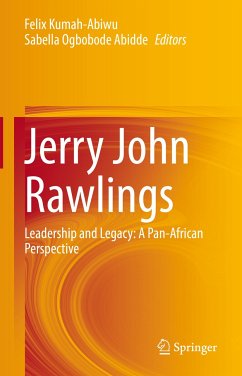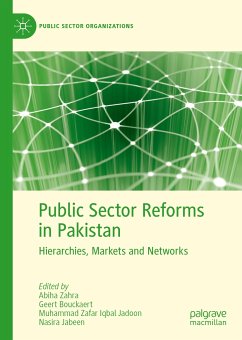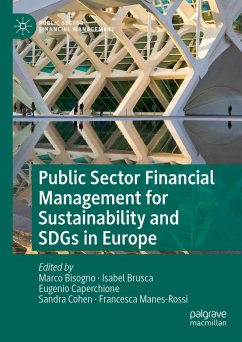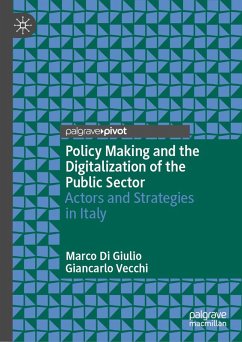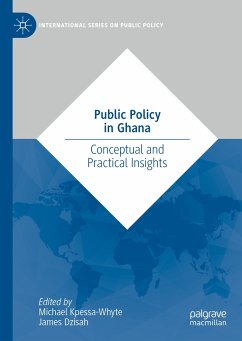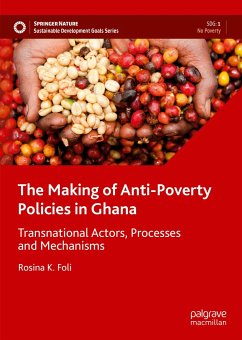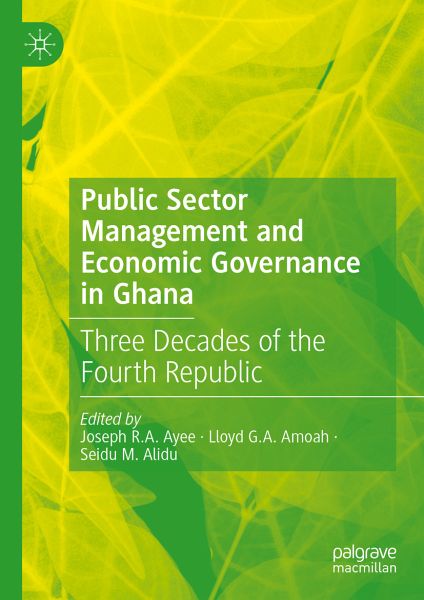
Public Sector Management and Economic Governance in Ghana (eBook, PDF)
Three Decades of the Fourth Republic
Redaktion: Ayee, Joseph R. A.; Alidu, Seidu M.; Amoah, Lloyd G. A.
Versandkostenfrei!
Sofort per Download lieferbar
112,95 €
inkl. MwSt.
Weitere Ausgaben:

PAYBACK Punkte
56 °P sammeln!
This book is one of two volumes that examines the successes and failures of the Ghanaian Fourth Republic from a political, public administration, and public policy viewpoint. Published to coincide with the thirtieth anniversary of the founding of the Fourth Republic, these volumes bring together leading scholars to consider the political achievements and failures that have taken place in the country since 1993, and what these tell us about the state of politics and democracy in twenty-first century Ghana and beyond. This volume focuses on public sector management and economic governance. It as...
This book is one of two volumes that examines the successes and failures of the Ghanaian Fourth Republic from a political, public administration, and public policy viewpoint. Published to coincide with the thirtieth anniversary of the founding of the Fourth Republic, these volumes bring together leading scholars to consider the political achievements and failures that have taken place in the country since 1993, and what these tell us about the state of politics and democracy in twenty-first century Ghana and beyond. This volume focuses on public sector management and economic governance. It assesses themes such as policy elites, policing, bureaucrats and public servants, the economy, decentralization, rural development, and foreign policy. The volume also places Ghana in a global context, demonstrating how lessons learnt from the country can be applied elsewhere, and what is unique about the Ghanaian experience. It will appeal to all those interested in public management, public administration, governance, economics, and African politics.
Dieser Download kann aus rechtlichen Gründen nur mit Rechnungsadresse in A, B, BG, CY, CZ, D, DK, EW, E, FIN, F, GR, HR, H, IRL, I, LT, L, LR, M, NL, PL, P, R, S, SLO, SK ausgeliefert werden.



